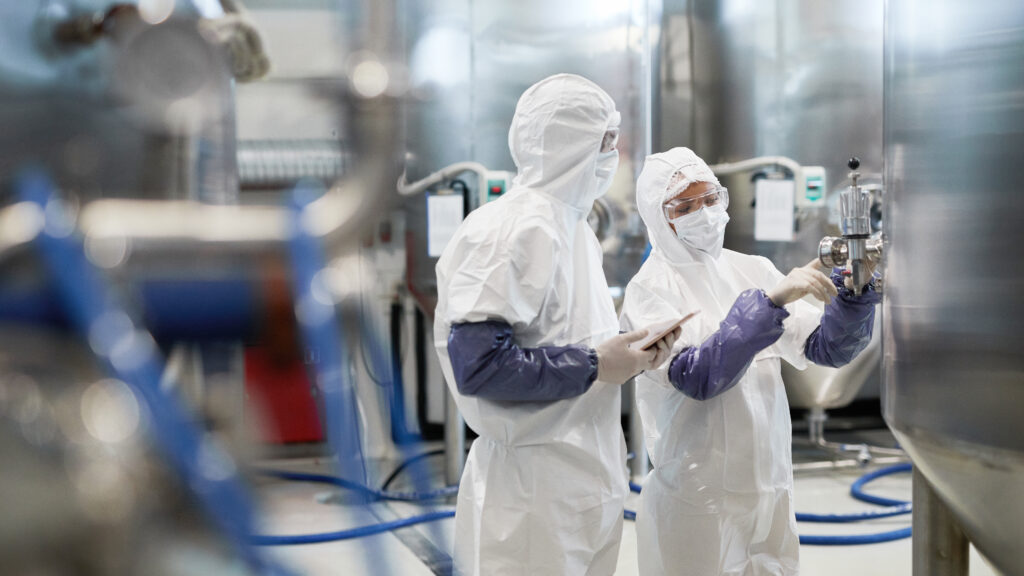For more than a century, the United States has been the undisputed leader in medical and biotechnology innovation. It saved millions of lives by mass-producing the first polio vaccines. U.S. researchers discovered new antibiotics that turned once-fatal infections into minor ailments, and developed antiretroviral cocktails that transformed HIV from a death sentence into a manageable, chronic disease.
Today, the U.S. is on the cusp of a golden age of biotechnology. Genome editing could soon eradicate disease traits passed from parent to child, and gene therapies could eliminate sickle cell anemia, cystic fibrosis, and certain cancers. The development of new biofuels could transform global politics as countries grow less reliant on oil-rich nations. And in agriculture, American biotech innovations are boosting food and crop production across the world, reducing the stresses brought by famine and food insecurity.
advertisement
Simply put, the nation’s leadership in extending and enhancing human life has advanced its political and moral authority in global affairs, underpinning its economic prosperity, diplomatic leverage, and national security.
Yet global competitors are now threatening America’s biotechnology dominance. The country’s strategic rivals are aggressively investing in biotechnology in an effort to surpass and replace U.S. preeminence. The nation’s future may well depend on how America maintains and extends its current advantage.
As a former naval intelligence officer and member of the U.S. intelligence community, I understand the threats posed to America’s security. The U.S. and its allies need a robust and vibrant biotechnology industry, as biotech is a vital strategic asset that strengthens a country’s role in the world and allows it to quickly respond to future bio-health threats.
advertisement
Consider China, which is positioned to assert a leading role in biotech.
Beijing has made biotechnology a centerpiece of its strategic plans, greatly expanding investments in genetic research and drug development. Between 2016 and 2020, the market capitalization of Chinese biotech companies increased from $1 billion to more than $200 billion. The government’s current five-year plan is set to increase biotech investment by 10% annually.
If China becomes the world leader in biotechnology by 2035, as it intends to do, it will control the availability of disease treatment and genetic information. This supremacy would expand its global economic influence while reshaping the global order to its interests. And if, as many believe, China has exerted influence through its “Belt and Road Initiative,” imagine its global influence when it controls the world’s supply of state-of-the-art medicines.
American leadership in biotechnology also helps minimize worst-case scenarios. Consider synthetic biology and gene editing. While advances in these fields promise solutions to the most devastating diseases, these technologies can be manipulated to create deadly pathogens.
Covid-19 demonstrated that even a moderately lethal virus can wreak massive damage. Currently available technologies can help those with ill intent to engineer far deadlier pathogens. In 2016, Canadian scientists reconstituted an extinct horsepox virus for a mere $100,000 using mail-order DNA fragments, demonstrating how easy it would be to manufacture deadly smallpox, a cousin of horsepox, in a laboratory.
The proliferation of biological know-how has made bioweapons more accessible to rogue nations and terrorist groups.
To deter and defend against biological attacks, America needs its own biodefense capabilities. U.S. scientists should not have to scramble to catch up. But domestic politics and gamesmanship routinely hold them back as the country’s leaders overlook the complexity and fragility of the nation’s pharmaceutical and biotech ecosystems.
Policymakers must also prioritize the country’s supply chain to ensure the U.S. has the capacity to meet both domestic and global demand for innovative medicines. The country must never be at risk of losing access to safe and effective medicines.
That’s why BIO, the organization I lead, supports the BIOSECURE Act, which is aimed at securing America’s domestic biomanufacturing supply chain. We also announced that WuXi AppTec, one of the Chinese companies regulated by the bill, would be ending its relationship with us.
As this legislation progresses, my colleagues and I look forward to working with members of Congress to mitigate any supply chain issues that would adversely impact patients and research and development.
Resiliency of manufacturing and distribution systems is a strategic imperative that’s essential for long-term leadership and security — and will also create jobs and opportunities across the country. The capabilities and capacity to create, manufacture, and distribute newer and better medicines and vaccines are the foundation for America to continue its essential role as the world’s medicine chest.
For decades, the U.S. has led the way in turning back disease on a sweeping scale. That leadership can’t be taken for granted. We need to maintain and bolster policies that foster biotech innovation.
John F. Crowley is the president and CEO of the Biotechnology Innovation Organization (BIO), and the former co-founder and executive chairman of Amicus Therapeutics.

